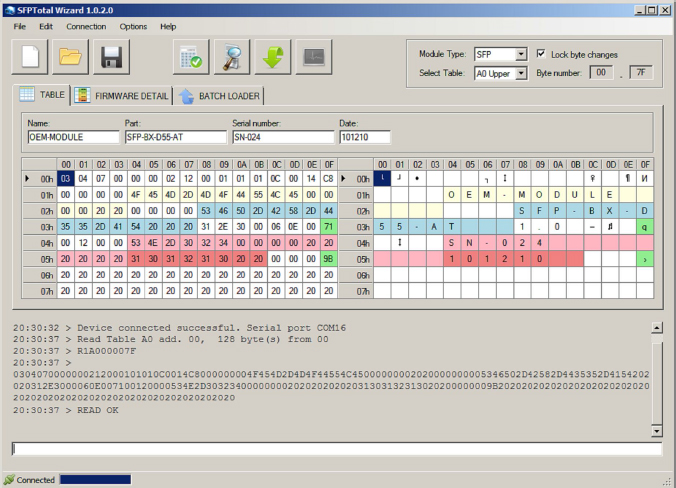Difference between revisions of "Reading transceiver's memory"
From SFPTotal Wiki
| Line 3: | Line 3: | ||
# Connect the PG series programmer to a computer and run the program, or just connect the device, if the program is already running. | # Connect the PG series programmer to a computer and run the program, or just connect the device, if the program is already running. | ||
# Choose type of your transceiver (Module Type) and a table for reading (Select table). | # Choose type of your transceiver (Module Type) and a table for reading (Select table). | ||
| + | |||
| + | [[File:SFPTotal_Module_type_selector.jpg]] | ||
| + | |||
# Click the button of reading the transceiver's memory: | # Click the button of reading the transceiver's memory: | ||
# The program display a response by programming board in the history of operations and exports the data in Table tab. | # The program display a response by programming board in the history of operations and exports the data in Table tab. | ||
Revision as of 14:59, 20 November 2015
To perform reading of the transceiver’s memory it is necessary to:
- Connect the PG series programmer to a computer and run the program, or just connect the device, if the program is already running.
- Choose type of your transceiver (Module Type) and a table for reading (Select table).
- Click the button of reading the transceiver's memory:
- The program display a response by programming board in the history of operations and exports the data in Table tab.
If reading successful, then program will show message READ OK.
Notes
- Recommended to enable logging for saving all images that will be read from the memory of the transceiver to case of situation when you accidentally overwrite the memory of the transceiver or improper configuration will be necessary to restore the original firmware.

